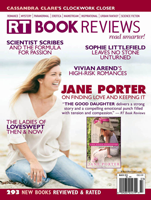This year, I attended a few RWA-romance writer events. For some reason, lately, I have been finding romance not only more appealing and fascinating, I have been exposed to some excellent writers of the genre. Being in a critique group of mostly romance writers might have something to do with it, too. Maybe I am getting more in touch with my emotional side.
This past
weekend we were fortunate to have Jane Porter come and speak at a workshop here in Fresno. She is a romance writer
with over 40 books in print. In the past I have gravitated toward the Sisters-in-Crime (now an international organization
to promote and support women writers of mystery and suspense) as “my
organization,” because in the past I wrote mystery and suspense.
As Jane pointed out, there is a
general looking down one’s nose at
the romance genre that has been around for quite a while. I have been guilty of
it myself. Early pulp romance was not of the best writing, but neither
were the early pulp mysteries. A good writer can be found in any genre, but
Jane said some things that struck home to me about this subject.
Crime fiction (mystery, suspense) is
considered to be more serious and favored by the male market—dark, mysterious and
therefore “intellectual.”
Romance is considered emotional and
favored by the female market, but women themselves enjoy both genres. If you think of the history of women’s
rights, it’s not hard to see why this form of women’s fiction would be looked down upon. It has not been that long since women’s
rights were expanded in this country. Women were (and still are by some)
considered to be weak, emotional and not very intellectual—a hold-over from a
time when we were considered property, didn’t have the vote and had few rights
because women weren’t considered capable of serious thought and action.
That stereotype still plagues the romance
genre and women writers who write ‘such stuff.’ Jane made the point that women
(and now men) who write romance just need to ignore it and move forward. The
“intellectual” genres will continue to look down at romance writers and the
romance genre.
And, how does this affect the way writers write dialogue for women
and men as they converse on the page?
Women, on the whole (and not by any means
all) are more in touch with their feelings, are not afraid to be emotional and
actually experience life in a more emotional way. We are more wordy, like to
socialize and chat and learn about life through talking and gossiping about the
experience of others—it is how we make sense of our own emotional journey.
Men, on the whole (and not by any means all)
tend to be less wordy and are easily turned off when a woman gets too much into
the chatter. They will relate with other men in bite-size chunks of words, not
need so much talking and do not like to get in touch with their emotions and
emotional side as a rule until they are pushed.
 A few Jane Porter tips on writing (mostly for romance writers but it
applies to other writers as well):
A few Jane Porter tips on writing (mostly for romance writers but it
applies to other writers as well): - To
increase scene speed use sentence fragments and interrupting—forcing action,
forcing things to happen.
- Be sure you have the dance, the
tease, the word play to turn on the mind—and keep the reader reading.
- Women
and men speak differently. Keep this in mind when writing dialogue:
Women use 10 times as many words as men do.
Are far stronger in words, language.
Use speech to connect, to create camaraderie,
to build friendships.
Men tune out after the first few words of a
woman talking to them.
They don’t like to defend themselves and
will just walk away.
Have more clipped conversations.
Will heckle other men and put each other
down.
Say things like, “this conversation is
over,” as they stand up, to leave—no more words, “I’m out of here."
They command more rather than ask.
They curse more.
- We
like to see glimpses of hope in the "bad boy." (He might return and check on a little sister after some bad behavior)
- Keep
in mind age, background, younger, older, someone who has seen a lot of
hard stuff, when creating dialogue. Be sure your voices reflect that.
Do you take a lot of care about the above
points when writing dialogue?
What is your genre(s) of choice?

3 comments:
Ho, Cora -
Once again I will try to post to the blog. I attended the same Jane Porter conference and totally agree with what you said. A strong point Jane also made is for emotion. Give the reader emotional satisfaction. The reader wants a journey.
Excellent post.
JoAnne
Thanks, JoAnne, for adding that information and for commenting.
Super tips re dialogue. Thank you, Jane and Cora. I may have to post this on my FB page!
Post a Comment